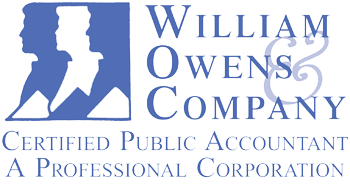
Reputation is everything - particularly for a small business owner. Referrals bring you new business, and word-of-mouth can establish you as a trustworthy partner in your community. In the past, your reputation flowed between individuals or written recommendations that you solicited, but all this has changed with the Internet.
Online reviews, Facebook comments, and more extend a client’s reach beyond their circle of friends. This shouldn’t only be viewed as a negative - an online presence and positive reviews could help you expand your business.
Top Review Platforms
Yelp, Angie’s List, HomeAdvisor, and more. Depending on your type of business, there’s likely a website where customers can review your services. Customers might leave a Google review or a comment on your Facebook page, and
Studies have shown that 74% of consumers trust a local business with positive reviews more. A company with one negative article on the first page risks losing up to 22% of their business, and with two negative reviews this statistic goes up to 44%. Failing to pay attention to what people are saying about you online could have serious consequences.
If you haven’t googled your business in a while, take some time to explore search results and review websites. You may need to put more effort into building your online profile.
Soliciting Positive Reviews
All of the major review platforms have policies that prohibit businesses from paying for or incentivizing people for positive reviews. They want honest feedback on a business’s performance, which they encourage by giving special badges to prolific and verified reviewers, or giving them access to new technology and features. So, how do you get positive reviews?
Ask for them! In the same way you might have once asked a client to give a positive recommendation to a prospect or talk to them on the phone, ask for online reviews. Insert a request or a link in the signature block on your email when you send a client’s final tax return.
You can also send a direct email soliciting reviews. Keep them short and personal, use the client’s name, and customize the email’s body to the work you did for them. Don’t send an email requesting a review of your tax preparation services to a company that used your firm for a valuation during an acquisition.
Have the associate or employee with whom the client has had the most interaction make the request - the client likely feels more personal connection with them. Include a link that takes the client directly to the review site. The easier you make it for them to leave a review, the more likely it is that they’ll take the time.
If a small business owner praises your help with tax planning at the end of a meeting, ask them if they’d be willing to put that feedback on a review site. Most people are willing to help out and flattered that you asked them to submit feedback.
It’s not a good idea, however, to create fake accounts or ask employees to leave feedback. If you’re caught, it could cause reputational damage. The site could ban your business from posting or appearing in search results, and customers will lose trust. Honesty is always the best policy, and this includes the online world.
What to Do About a Negative Review
Unfortunately, negative reviews happen, and sometimes due to a situation completely out of your control. A client is unhappy with their tax return or thinks you missed a deduction, so they trash your firm on Yelp. As tempting as it may be to respond with - we don’t write the tax laws - a snarky or defensive response looks unprofessional.
Always respond politely and without swearing or name-calling. Offer to take another look at their tax return, thus demonstrating excellent customer service, if they believe you made a mistake. A bad review could be an opportunity to recapture a dissatisfied customer.
Prospects who are considering using your business could view a lack of response as a sign that you don’t offer superior customer service. While you could ignore them, the better choice is to formulate a documented and approved strategy to guide your social media manager in responding. Think about how you would handle someone if they came into your office and complained to your face, and maintain the same level of politeness.
The good news about negative reviews is that most people who frequent online review boards can recognize an overly emotional or retaliatory review. If you receive a fake review from someone that you have never served, you can report it to the website. They will investigate your complaint and take it down if it does turn out to be fake.
Oddly, people view negative reviews as a sign that all of the feedback is honest. If you don’t delete or hide negative comments, it shows that you’re not hiding anything. And if every single review is overwhelmingly positive, readers view them suspiciously and think they might be fake.
A balanced mix of reviews that hopefully leans positive is preferable to giving a false impression.
Include Online Reviews in your Social Media Strategy
Facebook allows people to rate and review a business on its platform. If you post on Instagram, a troll could show up in the comments. When working with a company like CPA Gardens to formulate an SEO or social media strategy, make sure you address social media reviews.
In surveys, social media users have indicated that they trust a page’s reviews more than they trust the brand’s content. Comments on a Facebook post could also reveal a growth opportunity, give you a chance to sell more services, or tell you what your clients value.
The online world does impact your brick and mortar business, just like IRL or “in real life” will make its way online. Addressing customer service concerns in both venues will help you build a positive reputation no matter where a customer finds you.
